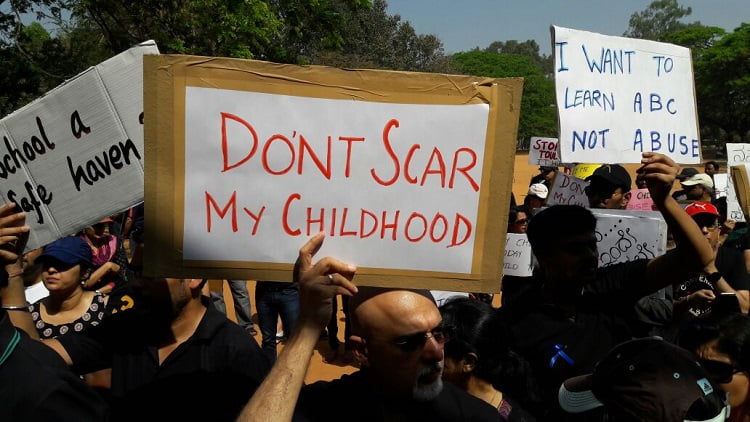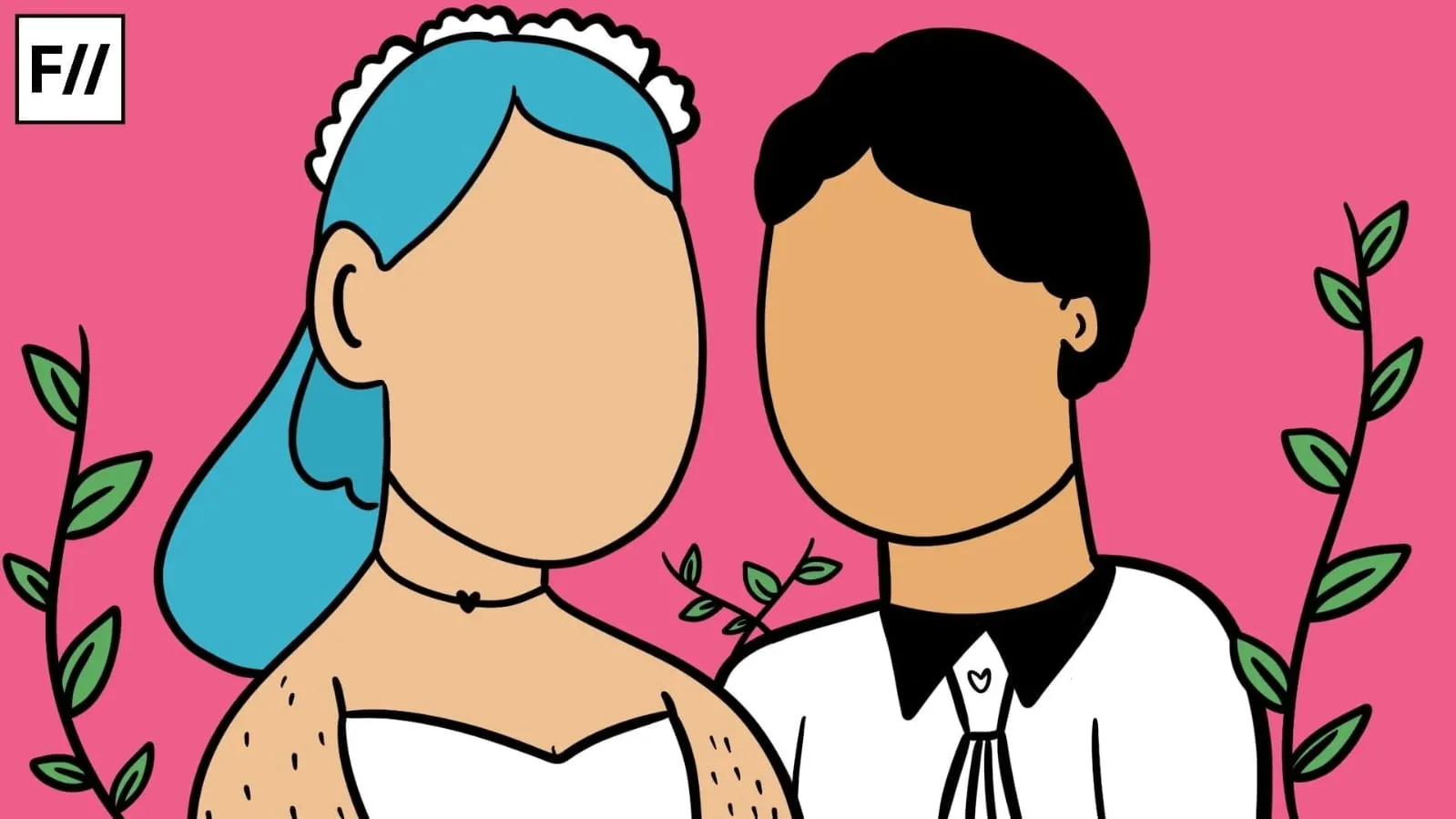Posted by Sayani Basak
Trigger warning: Child Sexual Abuse
The term ‘silent crime’ was first used to refer child sexual abuse (CSA) by journalist-cum-author Pinki Virani in her book Bitter Chocolate in 2013. It was also the first book I referred to understand about the crime in 2015 and which helped me decide to work with adult survivors of CSA. I interviewed ten survivors (eight female survivors and two male survivors) presently dwelling in Kolkata, and through their narrations, I have tried to document the silence from their childhood to the present adulthood years.
When I started my work, I often used to wonder why silence is highly prevalent towards cases of CSA and how children do not want to talk about their childhood abuse which they have been experiencing for years. To understand the several agencies where silence prevails, I have listed several episodes which a child undergoes from their childhood days, in conflict with themselves and their surroundings to hide their ‘past incident’ in their adult years.
Understanding The Meaning Of Abuse
The foremost thing which takes a long time is understanding and breaking the silence in their adult years by acknowledging the incident as ‘being abusive’. One of the survivors, Jasmine* (female, 31 years old ) said, “I was a child; it was something new to me. I remember I used to think every child experience the same. And he was my father, how can I suspect him also? Ami jantam baba ra hoito emni kore bhalobashe (I always thought fathers love like this).”
The childhood memories regarding their abuse are usually expressed innocently and as adults are always hierarchically in a higher position, children think that they are supposed to abide by them. At a very early age, the abused child may sense the signals of ‘secrecy’ from the molester but is often unable to recognise it as something wrong immediately, as they are supposed to trust the authority which the rest of the society expects them to. The child is expected to be obedient and encouraged to not question the actions performed by the adults.
Also read: My Experience Of Child Sexual Abuse Would’ve Been So Different With More Awareness
For instance, Alpana* (female, 31 years old), another survivor, said that, “He was loved by everyone in the family. When I understood that he was the person who abused me, I felt very bad, not because he was an abuser but because maybe I did something wrong. I did something for which he was unknowingly punishing me.”
My mother knew he had abused me, but still, she said to take his blessings on Dashami.
Most of the survivors had vivid memories of when in the day the abuse would take place. All the respondents had clear memory – as if memorised – where and how their abuse took place. In most cases, the abuse happened at home where the survivor and the perpetrator shared the same roof. They described the abusive incident by narrating the nature and tenure of the abuse that took place in their childhood years. According to Urmi* (female, 41 years), “He (the abuser) used to come in the early morning at around 5.30 a.m. because I remember my father used to knock at my door in the early morning to take some stuff from my room and after he left. He (the abuser) used to enter and call me from behind. I could remember his face and how his muscular body would be on my weak, thin body. I was seven years then.”
The Family I Belong To
‘Family’ is the ‘primary’ agency of socialisation and biological lineage that helps every child create their identity as an individual in the society. As most states in India is a patrilineal society, children take their fathers’ names. As the study was conducted in Kolkata, all the survivors I interviewes belonged to the Bengali community.
Most of them had accepted the social customs and rituals which made them perform many activities for the sake of their family’s name and ‘respect’ the status of the perpetrator. This included accepting gifts and touching their feet. Alpana narrated, “My mother knew he had abused me, but still, she said to take his blessings on Dashami (the last day of Durga Puja), Dashami r pronam sob boroder kei korte hoi (Blessing during the Day of Dashami, should be offered to all the adults in our culture). I didn’t say anything that day, I took his blessings by touching his feet.”
Urmi stated, “I belong to a Brahmin Bengali family. I remember, there was a ritual when we have our periods (menstruation), we were supposed to have water mixed with cow dung and honey to make us pure. So, this water is supposed to be drunk on the hands of a male authority member in the family, and unfortunately, this member was my elder cousin brother who was also my abuser.”
Somehow, family as an institution has tried to repress the child’s abuse since disclosure, likely to keep away ‘unwanted attention’ that would impact the family’s reputation. Power relations are a complex arrangement of forces within the society which shapes a person’s behaviour to perform in a certain way. Norms, customs, traditions in a way are hegemonic forces which exert such power. Incest is considered to be a departure from the normative practices which can further violates the family structure, and is hence ignored.
The ‘Power’ Of The Perpetrators
In the context of CSA, the ‘position’ of the perpetrator is powerful. But then the question arises – where does he get such power which makes him boldly continue with the abuse? Why is such power important? This is because the relationships within the biological family are bound by a thin thread of genetics which requires to be maintained for sustaining one’s own identity in the society.
The perpetrators usually keep themselves in such a trusted position with the survivor’s family that solidifies the web of silence for the abused child which becomes even more difficult to break.
The perpetrators are also aware of such layered complexities that helps them retain their position of authority and sustain the silence. The perpetrators usually keep themselves in a trusted position with the survivor’s family that solidifies the web of silence for the abused child which becomes even more difficult to break.
“Loke Ki Bolbe?” (What Will People Say?)
“Loke ki bolbe?” is a Bengali term which often gets reflected through narratives in the study. Most humans are preoccupied with the thought of what others think of them. These thoughts might arise out of fear of being judged and being different. In the cases where the abuse is disclosed by the survivor, families get stuck into the discourse of private-public forum where the disclosure becomes a threat to the ‘honour and dignity’ that has been earned by the family for generations. According to Alpana, “When I told my mother, she said that there was no point discussing it now as my maternal uncle (the perpetrator) already had a settled family with my maternal aunt and their daughters. It was my responsibility to uphold their position in our family and disclosing about the incident could break a happy family forever.”
Also read: Being A Survivor Of Child Sexual Abuse Cannot And Should Not Define Me
There is always a fear of ‘losing face’ when confronting with such abusive incidents within or outside the family as the existence of the survivor and her family becomes isolated to the normative prototype of society. Similar instances can be found in cases related to domestic violence, marital rape, and sexual harassment against women. It can be said that the most protected agencies like family, schools, social norms and cultural traditions facilitate silence in cases related to CSA. For the abused child, the silence becomes ‘political’ rather than ‘personal’.
*Names are changed to protect the identity of the survivors
Sayani Basak is a PhD Student from Tata Institute of Social Sciences, Guwahati Campus. She is trained in Psychology but has found new love in Gender and Sexuality Studies. She loves dancing and painting, and has a keen interest in graphology. You can follow her on Facebook.
Featured Image Source: The News Minute
About the author(s)
Guest Writers are writers who occasionally write on FII.




